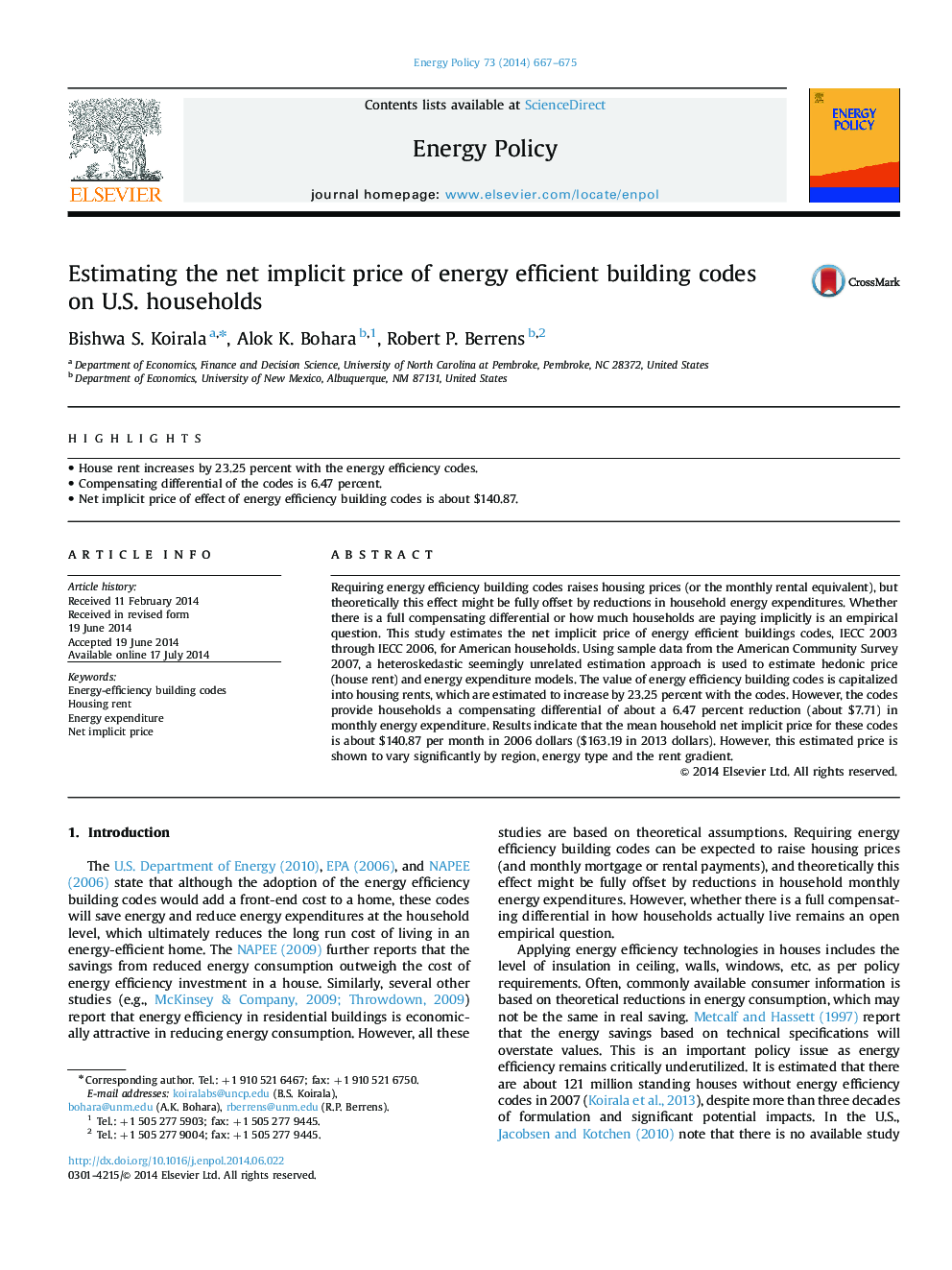| Article ID | Journal | Published Year | Pages | File Type |
|---|---|---|---|---|
| 7402095 | Energy Policy | 2014 | 9 Pages |
Abstract
Requiring energy efficiency building codes raises housing prices (or the monthly rental equivalent), but theoretically this effect might be fully offset by reductions in household energy expenditures. Whether there is a full compensating differential or how much households are paying implicitly is an empirical question. This study estimates the net implicit price of energy efficient buildings codes, IECC 2003 through IECC 2006, for American households. Using sample data from the American Community Survey 2007, a heteroskedastic seemingly unrelated estimation approach is used to estimate hedonic price (house rent) and energy expenditure models. The value of energy efficiency building codes is capitalized into housing rents, which are estimated to increase by 23.25 percent with the codes. However, the codes provide households a compensating differential of about a 6.47 percent reduction (about $7.71) in monthly energy expenditure. Results indicate that the mean household net implicit price for these codes is about $140.87 per month in 2006 dollars ($163.19 in 2013 dollars). However, this estimated price is shown to vary significantly by region, energy type and the rent gradient.
Keywords
Related Topics
Physical Sciences and Engineering
Energy
Energy Engineering and Power Technology
Authors
Bishwa S. Koirala, Alok K. Bohara, Robert P. Berrens,
